Ointment and cream are affordable and popular means of combating psoriasis on the face. The main task is to choose the right medicine and consult a doctor.
Features of the disease
Psoriasis on the face is a problem that requires timely treatment. In addition to itching, discomfort, constant dryness and flaking, a visual defect remains the cause of depression in patients. Because of this, treating facial psoriasis becomes a priority for many. People agree to accept the existence of rashes on the body, but everyone wants to cleanse their face first.
It is unlikely that you will be able to completely get rid of psoriasis. You can only extend the period of remission (up to lifelong) and reduce the number of plaques on the skin of the face. To achieve the appropriate goal, local and systemic therapy is used.
In the first case, it is better to treat psoriasis with ointments and creams. This helps to locally influence pathological areas and normalize the patient’s condition. Systemic therapy is effective in influencing the pathogenesis of psoriasis, for example, autoimmune inflammation. This also leads to a weakening of the symptoms of the disease.
Psoriasis on the face is a symptom that requires complex treatment. You must first consult with your doctor to select a medication and prevent adverse reactions.
Local treatment with ointments
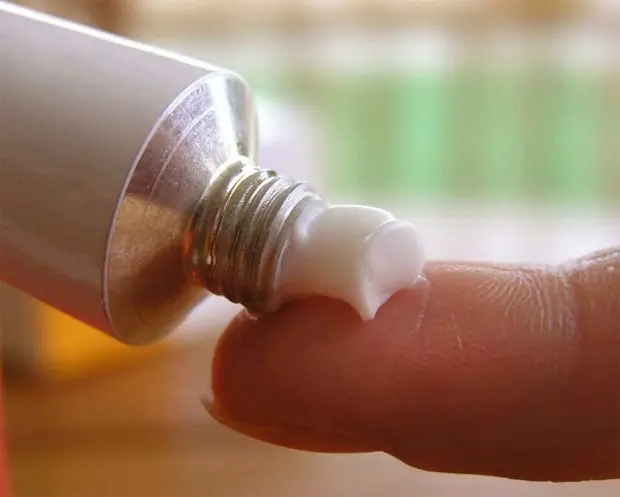
Treatment of psoriasis when rashes are localized on the face involves the use of topical medications in the form of ointments and creams. There are many specialized products on pharmacy shelves. They are conditionally divided into the following groups:
- Hormonal medications. Such remedies are effective in treating the disease. They greatly reduce the severity of the inflammatory process and lead to the cleansing of plaques from the epidermis.
- Combined drugs. Any face cream for psoriasis may contain several active ingredients. Hormones are often combined with salicylic acid, zinc and other substances for better results.
- Nonspecific products that do not contain hormones. This group mainly includes medications without glucocorticoids. They moisturize the skin, normalize microcirculation and metabolism in the dermis. It is worth starting treatment with these drugs, since they are safe, and drugs with GCS can only be prescribed by a doctor.
Depending on the severity and characteristics of the course of the disease in each individual case, the doctor selects a drug for the most effective treatment.
Psoriasis on the face requires special attention from both the doctor and the patient. Treatment with ointments helps achieve several results:
- moisturizing the skin;
- elimination of itching;
- reducing the severity of the inflammatory process;
- reducing the number of plaques on the surface of the skin;
- prolongation of the remission period.
The main thing is to choose an effective cream for psoriasis. Below is a list of popular and effective drugs that improve the condition of the skin.
Hormonal and combined drugs
Psoriasis on the face is a symptom that causes a lot of discomfort. Patients try to cure it as soon as possible. Hormonal drugs are often used for this. They help to quickly achieve the desired result, but using them for a long time is dangerous - there is a risk of developing resistance to other types of therapy.
Elokom
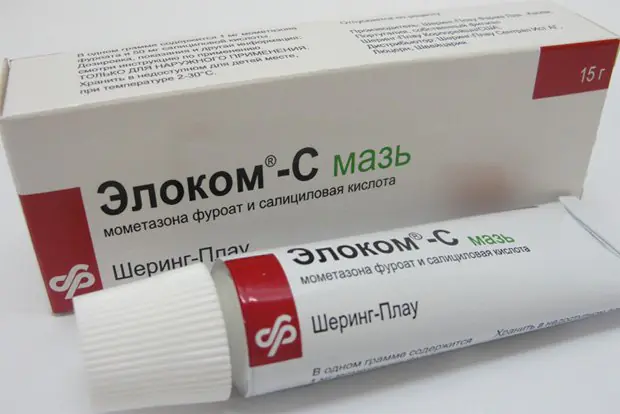
The drug is one of the local agents with glucocorticoid activity. The active substance is mometasone furoate. The main benefits of this remedy for patients with psoriasis are:
- anti-inflammatory;
- antipruritic;
- decongestant;
- vasoconstrictor.
When treated with ointment for psoriasis of the skin on the face, it is possible to significantly and quickly reduce the severity of symptoms. In the epidermal tissues, blockade of phospholipase A2 occurs with a parallel decrease in the amount of lipocortins.
Due to this, it is possible to reduce the activity of local inflammatory mediators, which are responsible for the progression of the pathological process on the face. Appropriate treatment leads to normalization of the dermis.
Plaques disappear, itching decreases, the skin becomes softer, keratinization is eliminated, and the person feels more confident.
Elokom should be used only after consultation with a doctor. Most often it is applied to the skin once a day for a certain period. The duration of the course of therapy depends on the characteristics of each individual case.
Celestoderm
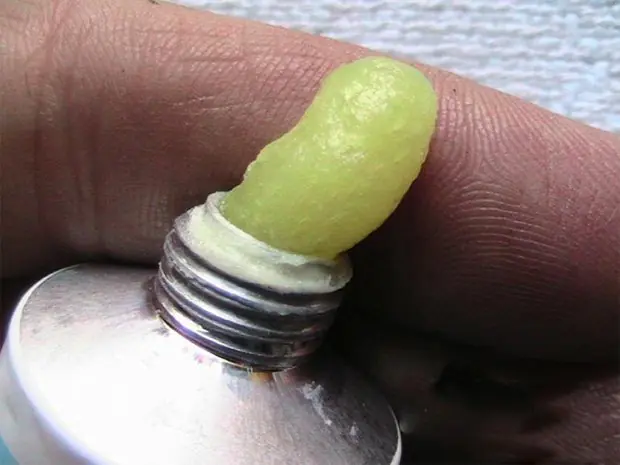
Representative of combined products. The active components of the medicine are:
- betamethasone – topical glucocorticosteroid;
- Gentamicin is a broad-spectrum antibiotic from the aminoglycoside group.
Due to the presence of an antimicrobial ingredient, Celederm has a complex effect on the affected areas of the skin. Traditionally, the hormonal component of the drug reduces the activity of the inflammatory process.
The intensity of itching decreases, plaques and scales disappear. Gentamicin provides reliable protection against secondary infection.
The mode of use and dosage of the medication are prescribed by the doctor depending on the severity of psoriasis on the face. Self-treatment is fraught with progression of unwanted side reactions.
Triderm
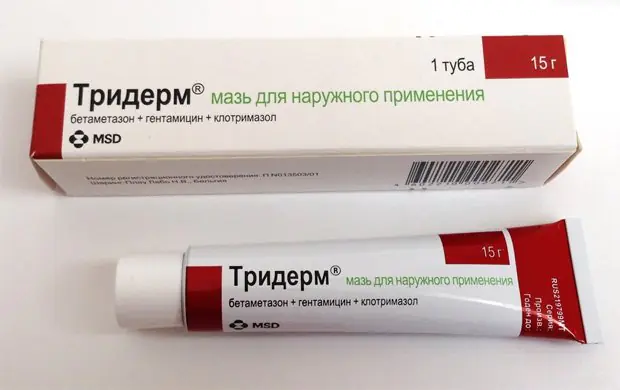
Another representative of combination medications for local therapy. Active components of the drug:
The last ingredient is antifungal. Thanks to it, Triderm has a wider range of effects on the affected areas of the skin. Suitable for treatment for most patients.
If there is a suspicion of bacterial or fungal invasion, Triderm is the drug of choice. The medicine eliminates itching, fights pathogenic microflora, and leads to a reduction in the severity of plaques and accompanying symptoms.
When using hormonal drugs, it is important to remember precautions. Typical side effects of topical glucocorticosteroids:
- burning, itching, discomfort on the skin;
- folliculitis;
- atrophy and dryness of the epidermis;
- hypopigmentation, skin maceration;
- the occurrence of steroid acne.
Do not use hormonal ointments and creams for tuberculosis lesions of the skin, syphilis, or individual intolerance. Due to the nature of the effects of hormones on the body, they are allowed to be used only after consultation with a doctor.
Aids
Psoriasis on the face is a serious problem. To improve treatment results or eliminate typical symptoms in mild cases of the disease, sometimes it is enough to use a simple ointment or cream.
There are a lot of skin care products on store shelves. Below we will consider popular and local ointments and creams for combating psoriasis on the face, but without hormonal components.
Zinc ointment
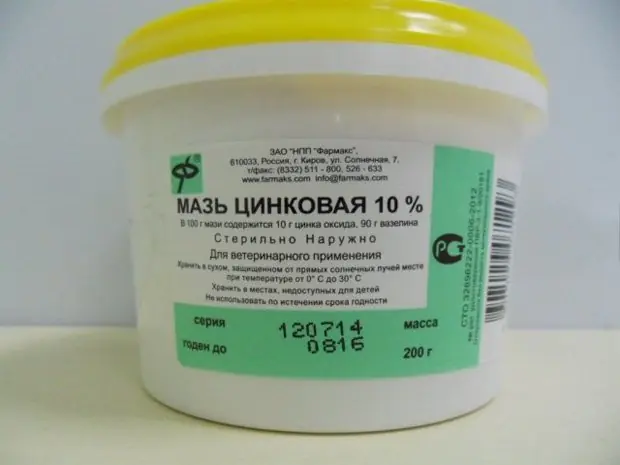
A popular medicine used in dermatology. Zinc oxide is considered a universal remedy that stabilizes skin functions.
It acts in several directions at once, causing:
- antimicrobial;
- drying;
- anti-inflammatory effect.
Due to such a nonspecific, but complex effect, the ointment has become an effective remedy for combating psoriasis on the face and other parts of the body.
Apply 3-5 times a day. Your doctor will advise you on the exact dosage and mode of use. It is not recommended to use the ointment simultaneously with other external agents. This may weaken the effect of the drug.
Salicylic ointment
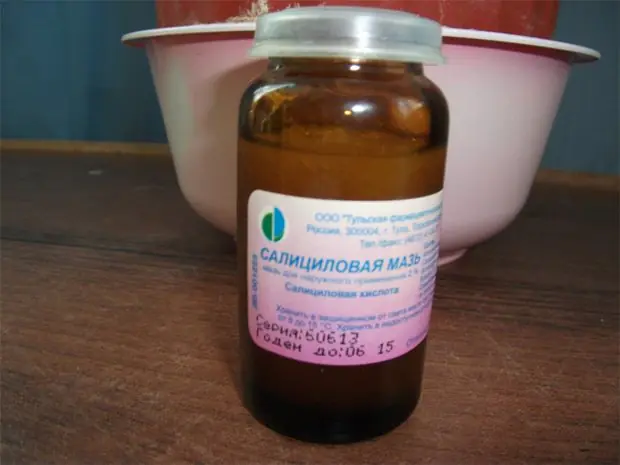
A medication that is used in the complex treatment of psoriasis on the face. Reduces the intensity of the inflammatory process. A useful property of the drug is the ability to soften keratinization on the skin (keratolytic effect).
Salicylic ointment is often included in combination medications.
Moisturizers
Regular use of moisturizer for psoriasis is an important aspect of successful treatment of the disease. Such remedies are not the main ones in therapy. They lead to a nonspecific improvement in the condition of the skin and increase the effectiveness of taking medications.
Popular representatives of products for moisturizing the dermis remain:
- Cream Garnier. A cosmetic product created for intensive care of dry and aging skin. Softens keratinization and makes the body cover much softer.
- Moisturizing cream H >The use of moisturizing cream should be agreed with a dermatologist. Due to the variety of products, it is difficult to independently predict the interaction of products for the treatment of psoriasis on the face.
In cases where the effectiveness of treatment is insufficient, the use of systemic treatment is considered, and the characteristics of the patient’s life are also carefully analyzed. Sometimes in this way it is possible to determine the risk factor, for example, when body weight is reduced by 15 kg, the symptoms of psoriasis disappear.
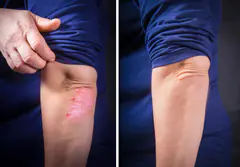
Hormonal medications are often prescribed to treat psoriasis, but with long-term use they can cause unwanted side effects.
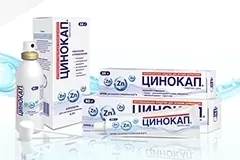
“Zinocap” is an example of a modern combination drug that can relieve symptoms at all stages of psoriasis in children and adults.
Read more. 
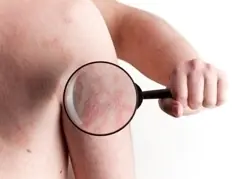
Psoriasis cannot be cured once and for all, so the main goal of therapy is to achieve stable and longest-lasting remission.

Exactly following all the doctor’s recommendations, showing patience and perseverance will help defeat psoriasis.
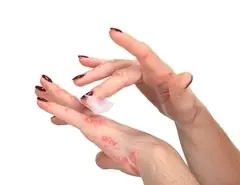
Treatment of psoriasis is most effective at the earliest stage. At the first signs of the disease, it is recommended to start therapy with safe non-hormonal drugs and be sure to consult a doctor.
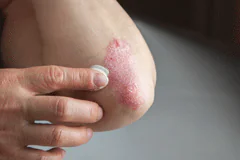
If left untreated, chronic psoriasis can lead to worsening symptoms and more frequent flare-ups.

Childhood psoriasis belongs to the group of chronic dermatoses; in most cases, it occurs and worsens during the cold season.
People living with a diagnosis of psoriasis know firsthand how much depends on the right choice of medication. This disease does not forgive mistakes in treatment and careless attitude towards one’s health. An important role in the fight against psoriasis symptoms is played by well-chosen external therapy and timely treatment. The key principle in choosing a treatment regimen, especially in the early stages of psoriasis development, is the principle of “do no harm” - the treatment should not harm the health of the skin, causing undesirable consequences such as skin atrophy or withdrawal syndrome. After all, the main goal of therapy is to prolong periods of rest and health of the skin without sudden and painful relapses and exacerbations.
Hormonal ointments for psoriasis: do we treat or cripple?
A common group of external agents for the treatment of psoriasis are ointments based on glucocorticosteroid hormones. These substances have the property of suppressing the activity of the immune system, reducing inflammation. Therefore, for severe exacerbations of psoriasis, steroids are prescribed systemically - in the form of tablets or injections. However, this approach is fraught with serious side effects: therapy changes the body’s hormonal levels, and discontinuation of drugs can lead to disruptions in the functioning of the endocrine and cardiovascular systems.
Topical steroids (external hormonal agents) are partly devoid of the dangerous properties of systemic hormone-based drugs: the effect manifests itself exclusively at the site of application. Their advantage is their speed of action: within a few minutes after application, patients notice a decrease in itching, and over the next few days, redness in the area of psoriatic plaques is significantly reduced, their growth and peeling stops.
However, unfortunately, side effects are also typical for topical steroids - and no less serious: due to decreased immunity at the site of application, the skin becomes thinner and discolored, and there is a risk of secondary infection. This undoubtedly complicates treatment. The most serious consequence of the use of topical steroids is the development of addiction. As a result, other drugs (and even topical steroids themselves) no longer help, provoking further, sometimes more severe, relapses after discontinuation of the drugs. That is why the sale of topical steroids in Europe and the USA without a prescription is prohibited. Independent and uncontrolled use of these drugs, which are classified as potent, is unacceptable.
In Russia, most products based on topical steroids are inexpensive and are sold without a doctor’s prescription, so cases of abuse of this type of treatment for psoriasis are common. Meanwhile, dermatologists do not recommend using local steroids for large (more than 20% of the skin surface) affected areas, or applying such products to sensitive areas of the body - the face, neck, skin folds and diaper rash areas. It is advisable to completely abandon the idea of using hormonal ointments and creams without a doctor’s prescription: this can reduce the effect of the main treatment, harm your health and provoke an attack of severe exacerbation of psoriasis.
Most often, hormonal creams and ointments are made based on the following substances:
- betamethasone (“Akriderm”, “Beloderm”, “Celestoderm”);
- hydrocortisone (“Hydrocortisone”, “Laticort”, “Oxycort”);
- clobetasol (“Cloveit”, “Powercourt”);
- mometasone (Uniderm, Elokom, Gistan N);
- methylprednisolone (Advantan, Comfoderm);
- triamcinolone (“Fluorocort”, “Triacort”);
- fluocinolone (“Flucinar”, “Sinaflan”).
Traditional non-hormonal ointments for the treatment of psoriasis: will it not be worse, but better?
Given the serious side effects of hormonal creams and ointments, many patients prefer to treat psoriasis with less “aggressive” medications. Some of them are the property of folk medicine and traditional skin treatment recipes that were popular in the past.
The advantages of traditional non-hormonal treatment of psoriasis include its comparative safety with hormonal drugs, low cost and absence of serious side effects. The disadvantages include varying (often low) degrees of effectiveness and, in some cases, allergic reactions that patients develop to the components of a particular product.
- Naftalan, ichthyol, dermatol, kartalin ointments, tar-based ointments - have anti-inflammatory and antiseptic effects. However, some of them (for example, naphthalene ointment) cannot be used in advanced stages of psoriasis and on large affected areas, while others (for example, tar ointment) have a photosensitizing effect, so they are not recommended to be combined with phototherapy. In addition, long-term use of these products increases the likelihood of developing skin cancer. Traditional ointments also have a rather strong odor and can stain clothes, making them not very convenient to use.
- Keratolytics (sulfur-salicylic ointment, “Cygnoderm”) have anti-inflammatory and antimicrobial effects, cause increased exfoliation of dead cells, which accelerates the healing process of psoriatic plaques. Possible side effects include the risk of inflammatory reactions, a burning sensation, and pigmentation of surrounding healthy skin (coloring healthy skin and hair brown).
- Herbal remedies (ointments and creams based on aloe, elecampane, celandine, sage and other herbs) have anti-inflammatory and healing effects, and prevent the development of skin infections. They are auxiliary agents in the treatment of psoriasis, complementing the effect of the main treatment.
- Moisturizers (baby creams and oils, cosmetic hydrating products: Bioderma, Vichy, Mustela and others) are also auxiliary in the treatment of psoriasis and help fight dryness and a feeling of tightness of the skin. They are used in combination with medications to enhance the effect of the therapy.
Non-hormonal ointments and creams with a pronounced therapeutic effect: clinically proven
Separately, we should highlight a group of non-hormonal drugs, the effectiveness of which in the local treatment of psoriasis has been confirmed in clinical trials. Unlike ointments and creams from the previous group, the mechanism of action of these drugs has been studied in detail. They have an undeniable advantage over hormonal drugs due to their higher safety profile. However, even in treatment with these drugs, it is necessary to strictly adhere to the instructions for use and be aware of possible contraindications.
- Pimecrolimus (Elidel cream) has high anti-inflammatory activity. However, you should be aware that in case of bacterial or fungal skin infection, the use of pimecrolimus-based products is recommended only after the infection has been cured. If used uncontrolledly, pimecrolimus can cause local immunosuppression of the skin (suppression of local immunity), which increases the risk of secondary infection in the affected areas of the skin. Therefore, in the USA, for example, pimecrolimus is recommended only as a “second-line” treatment drug, that is, only in the absence of effect from other treatments. Pimecrolimus is prohibited for use in children under two years of age.
- Calcipotriol (Davonex cream and ointment) is a synthetic analogue of vitamin D3. Its action is based on increasing the level of calcium in skin cells, which normalizes the rate of their division and promotes the resorption of psoriatic plaques. Since calcipotriol is a prohormonal agent (which, after a series of biochemical reactions, is converted into an active hormonal metabolite of calcium metabolism), there are a number of restrictions on its use. In particular, calcipotriol is not used when more than 30% of the skin surface is affected due to the risk of hypercalcemia. The latter can cause heart rhythm disturbances and muscle cramps. It is also not recommended to apply calcipotriol to sensitive areas of the skin (face, neck, folds). Products based on this active substance have age restrictions: for example, Daivonex is not recommended for patients under six years of age. Calcipotriol is also not suitable as an adjuvant in the case of phototherapy treatment, since under the influence of UV rays it causes photosensitivity and leads to the development of skin burns.
- Zinc pyrithione (creams and aerosols “Zinocap”, “Skin-cap”). Due to the proven effectiveness and safety of treatment, drugs for the treatment of psoriasis based on this active substance can be classified as a “golden mean” remedy. Zinc is an organic and natural medicine for treating skin conditions. Its concentration in healthy human epithelium is about 20% of the total content in the body, and a deficiency of this valuable metal is accompanied by a variety of skin lesions and impaired wound healing. Medicines with active zinc (zinc pyrithione) have a whole range of specific properties (anti-inflammatory, antibacterial, antifungal), help reduce skin itching, promote the production of skin ceramides (lipids), which leads to the restoration of its barrier function. Products with zinc pyrithione activate so-called apoptosis (natural programmed death) of pathologically altered skin cells and inflammatory cells, thereby activating the natural renewal of epithelial cells, reducing peeling and eliminating psoriatic plaques. Studies have proven that active zinc has comparable effectiveness to hormonal agents and at the same time a good safety profile, since it is practically not absorbed from the surface of the skin and has no irritating or damaging effects.
Ointment or cream?
Many of the medications listed above are available in both ointment and cream form. How to choose the most suitable form?
- Ointments have a denser and greasy texture, which allows the drug to remain on the surface of the skin for a long time, especially if applied under a bandage.
- The cream has a softer texture, is easier to apply and absorbs faster, so it can be applied leaving the skin open, without using bandages and without fear of staining clothes or hands. As a rule, the cream has a pleasant smell, which is also important for daily use.
- Unlike ointment, the cream is less irritating, so it is better suited for application to the face, flexor surfaces of joints, and areas of increased sensitivity. Also, the ointment is not suitable for application to wet areas of affected skin with liquid discharge. The cream is more versatile in this sense.
- Traditionally, ointments for psoriasis are more widely represented, but this imbalance is gradually leveling out - more and more new dosage forms are appearing on the market in the form of creams, gels, and aerosols that are easy to use and especially suitable for application to hard-to-reach areas (for example, the scalp) .
We are looking for a balance between price and quality
Let's try to summarize the information received in the form of a table:
Name of some drugs and price
Areas of the epidermis affected by psoriasis require careful and regular care. It cannot be stopped either during exacerbations or during remission. Let’s look at what proper skin care for psoriasis should be like, and also tell you about popular cosmetics that will be useful for this skin pathology.
How to care for skin with psoriasis
The disease disrupts the normal course of all cellular processes in the skin, which leads to its thickening, roughening, peeling, and severe dehydration.
The affected areas are characterized by accelerated renewal of the epidermis, which leads to loss of elasticity, inflammation, and the formation of reddish plaques covered with characteristic scales.
If you follow the rules of hygiene, you can stop the listed unpleasant symptoms, but care must be comprehensive and regular.
Facial care rules

- try to exclude any evidence of injury - do not use aggressive scrubs, comb your hair carefully, do not rub the affected areas;
- be sure to moisturize the skin with special creams (we will talk about them below);
- when going outside in cold weather, apply protective cream half an hour before;
- wash and dry your face as carefully as possible;
- try to minimize being outside in bad weather conditions (frost, extreme heat, wind).
Scalp care
It is necessary to wash your hair covered with plaques as carefully as possible - do not comb or tear anything. To dry your hair, you should always use two towels. The first removes moisture, and the second is used to wrap the hair afterward.
The shampoo should be as gentle as possible; tar or baby shampoo is excellent. Some patients with psoriasis wash their hair with laundry soap - this is also allowed.
General care recommendations:
- It is better to cut off hair that is too long during the treatment period.
- The use of a hair dryer is allowed, but the mode should be selected as gentle as possible (both in temperature and blowing speed).
- Cosmetologists recommend that women avoid dyeing their hair.
- Too tight hats should be avoided - the skin needs to “breathe”.
Hygiene rules for the whole body
They must be strictly followed:
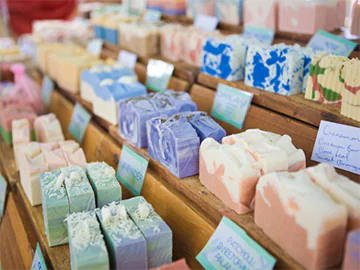
- scales and plaques should not be picked or attempted to be cleaned off mechanically. To reduce them, apply the cream half an hour before bathing - under the influence of water, the softened areas will disappear on their own;
- preference should be given to the shower rather than the bath;
- bathe with glycerin or baby soap at least four times a week;
- ensure that washing products are natural, that is, contain a minimum of dyes, fragrances and do not contain alcohol;
- Use only very soft towels. You do not need to wipe yourself with them, but only blot the affected areas;
- the maximum water temperature should be 37-38 degrees.
Sun protection
Dermatologists recommend that patients with psoriasis take sunbathing, but their duration must be strictly dosed.
The effectiveness of such a simple procedure has been proven and confirmed by the fact that in many patients, the pathology goes into remission in the summer.
This therapy allows you to accelerate tissue regeneration, activate the body's defenses, partially relieve itching and reduce peeling of plaques.
It is recommended to start with ten minutes, increasing the time daily. Maximum exposure to the sun should not exceed thirty minutes, otherwise the skin may burn.
You can be in the sun's rays until 11.00, as well as after 16.00 - it is better to avoid walking the rest of the time.
What cosmetics and skin care products can be used for psoriasis
Manufacturers offer people with skin problems entire cosmetic lines designed to relieve dryness, itching, soreness and other unpleasant symptoms.
Let us clarify once again that you should ask your dermatologist about the advisability of using certain creams, balms or ointments. The choice of cosmetics for psoriasis is strictly individual!
Foaming foam and other detergents
Lotions should be mild and contain no alcohol. As a rule, there are notes on the packaging that the product is suitable for sensitive, dry, inflammation-prone skin. The presence of moisturizing and softening components in the composition is mandatory.
Moisturizers
Basic skin care products, depending on the active ingredient, can be divided into several large groups:
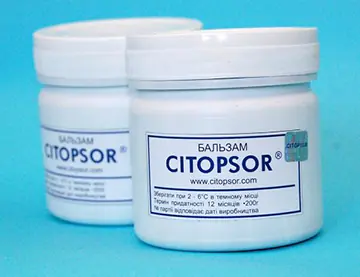
- Zinc pyrithione. This component stops pathological cell growth, which promotes plaque healing. Based on it, various products are produced, the most popular: Zinocap, Skin-cap.
- Salicylic ointment, 2%. Promotes faster exfoliation of dead cells and also reduces proliferation processes.
- Ointments based on grease (Cytopsor, Kartalin, Magnipsor, Antipsor). Their effectiveness is quite high, which is confirmed by numerous studies.
- Baby cream. On the market you can find dozens of types produced by a variety of brands - it is better to choose those that contain the maximum of natural ingredients.
- Medical cosmetics. The following moisturizers have proven themselves well: EUCERIN series (Germany), Lipikar balm, Uriage Keratosane cream, Karavaeva balm, Еau thermale AVENE (France), Cutibaza (Poland).
Ointments with urea
Urea promotes effective hydration of the epidermis, relieves itching and irritation, perfectly exfoliates, heals and has a bacteriostatic effect.
The most popular product in this group is Uroderm. This component can also be found in a cream called Losterin.
Products based on thermal spring water
For many decades, medicine has been using the treatment of psoriasis with thermal waters as an effective method of auxiliary therapy. Since it is impossible to stay at a sanatorium-resort treatment all the time, cosmetics based on thermal water are used at home. It is better to purchase it at a pharmacy.
Hyaluronic acid
In the treatment of psoriasis, acid is used to suppress local immunity, which reduces the rate of appearance of new plaques and also promotes the active division of maturing cells.
Foundations and other cosmetics
Women with psoriasis can use decorative cosmetics, however, they should not be zealous in trying to disguise the spots with powder, foundation and other means, as this will only worsen the situation.
There are no special lines for skin with psoriasis; the Derma Blend series is most suitable. It contains a green pigment that can partially neutralize the redness of the face.
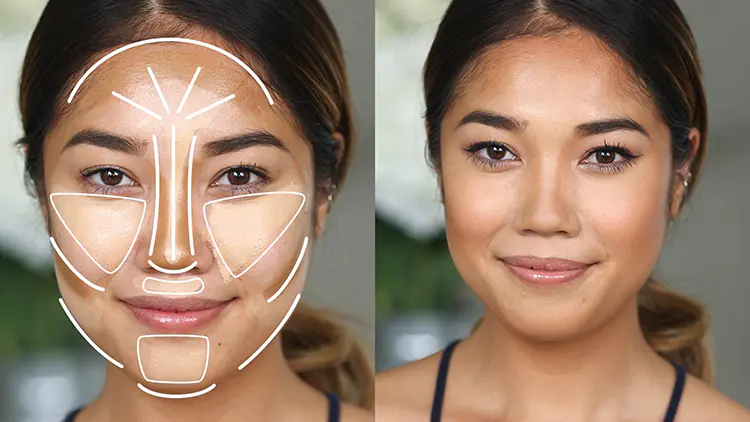
When choosing camouflage and foundation products, it is better to give preference to those designed for dry skin that contain omega-3 acids and essential fatty amino acids.
Bioderma brand products
The French brand's series is designed specifically for people with problem skin.
Shampoos, creams and emulsions contain keratoplastic, antifungal and anti-inflammatory components, which together relieve itching, flaking, and irritation, including on the scalp.
To relieve problems with psoriasis, it is recommended to use products from the Node line. Their price is quite high, however, it is fully justified by its excellent performance.
What cosmetic procedures will help soften the skin?

- chemical exfoliation (an effective and less traumatic method of exfoliation);
- wet wraps (applied locally at affected areas);
- Jessner peel;
- water baths with exposure to steam;
- use of mud exfoliants.
How to get rid of pain and itchy skin
Proper care and use of moisturizers gives a good effect.
A patient with psoriasis must do everything to prevent the condition from getting worse. First of all, you should not scratch or otherwise injure the affected areas of the skin.
It is extremely important to use not only external remedies, but also take well-chosen vitamin and mineral complexes, as well as diet therapy.

- sausages;
- spicy, salty and fatty foods;
- bakery;
- sweets;
- alcohol;
- allergens: citruses, strawberries, chocolate, etc.;
- canned food and marinades;
- fatty meats and fish;
- sweet carbonated drinks;
- animal fats;
- fast food;
- other harmful products.
How to remove age spots
Often, after the main course of treatment, spots remain on the skin, which significantly spoil the appearance.
To get rid of such consequences of psoriasis, you can use certain folk remedies:
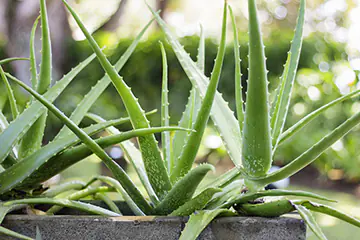
- Aloe. Cut a leaf and apply its inside to the stain for twenty minutes. Repeat daily as often as possible.
- Combine 1 tsp. hydrogen peroxide and 2 tsp. soda, gently rub into the affected area, rinse with water after fifteen minutes.
- Mix the egg whites and one teaspoon each of almond oil and lemon juice. Apply to stains for twenty minutes, rinse with water.
- Another effective mask: 1 tsp. lemon juice, 1 tbsp. milk and 20 grams of fresh yeast. Apply a thick layer to reddened areas, rinse after twenty minutes.
Lotions with cucumber pulp, parsley or lemon juice are effective. Sour cream, as well as tomatoes, whiten the skin perfectly.
Psoriasis is a disease that has a wave-like course. When remission occurs, in no case should you completely stop using cosmetics selected during the period of exacerbation. One of the main enemies of a person with psoriasis is stress, and one should try to reduce its impact to a minimum.



